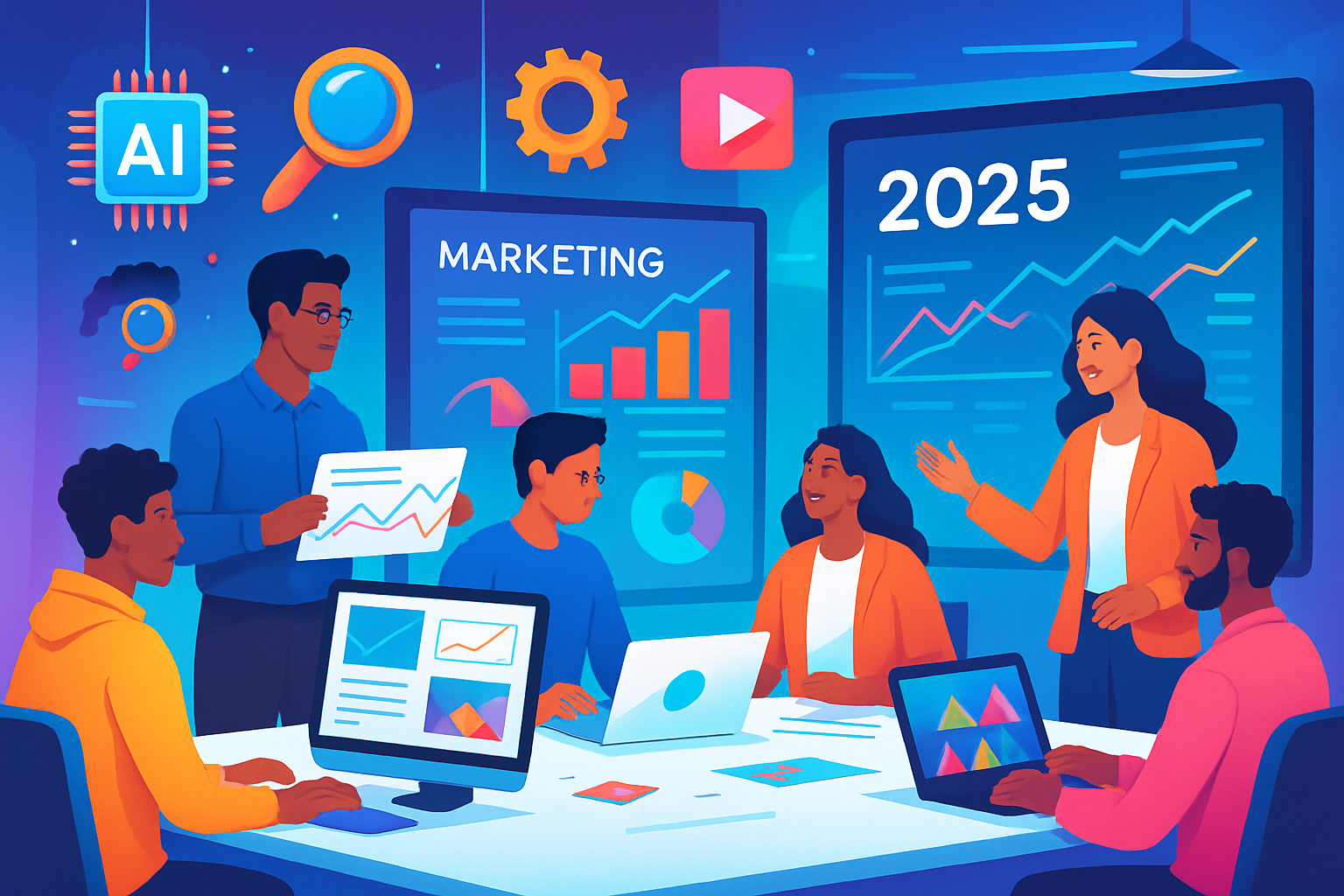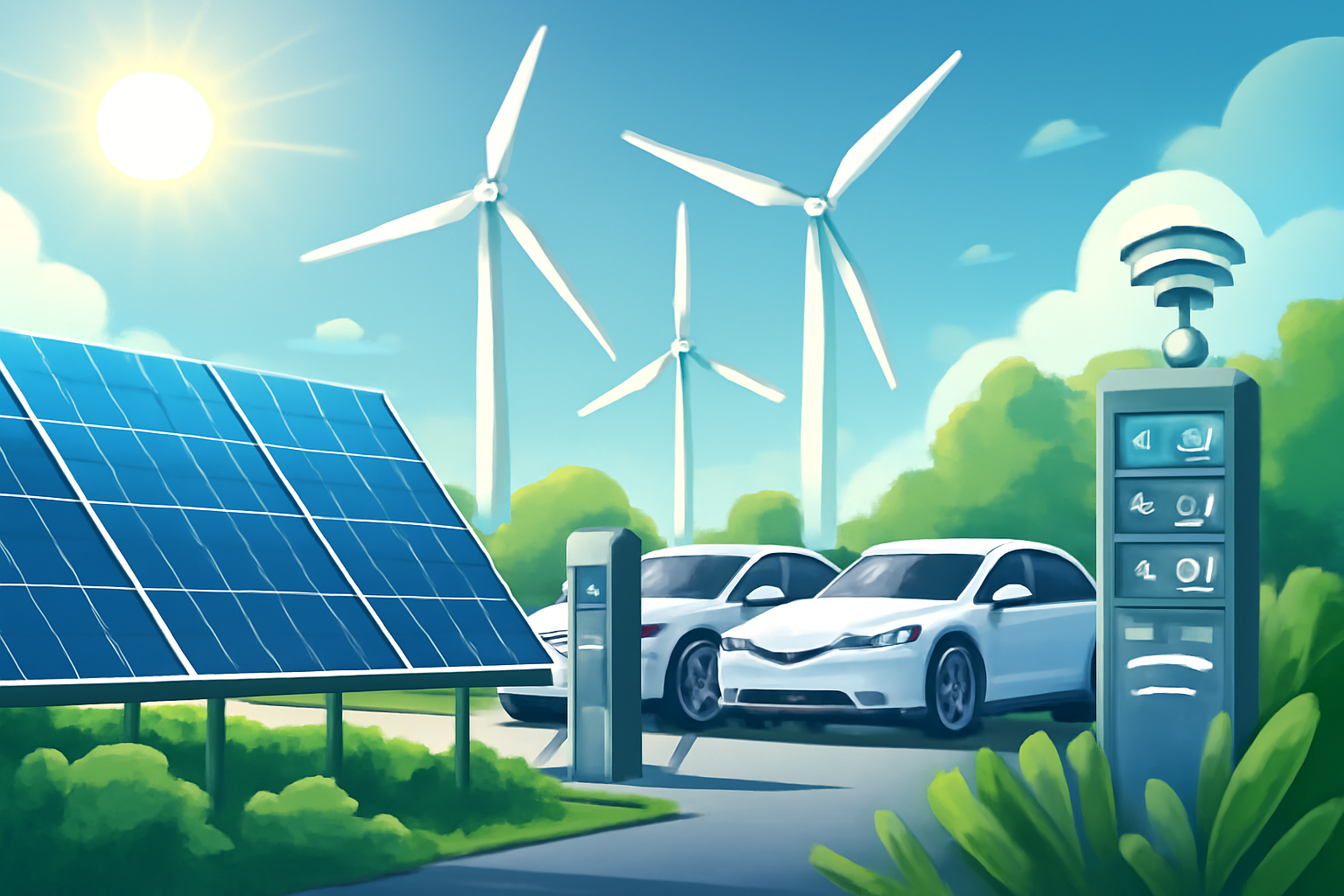Artificial intelligence (AI) has moved beyond being a buzzword in digital marketing—it’s now an indispensable part of campaign planning, execution, and analytics. In 2025, AI-powered systems are revolutionizing everything from audience targeting to content personalization, elevating results and efficiency for marketers worldwide.

Introduction: The Rise of AI in Digital Marketing
Over the past decade, rapid AI advancements have disrupted traditional marketing workflows. Machine learning models can analyze vast data sets in real time, predictive algorithms forecast trends, and generative AI platforms produce on-brand creative content with minimal human input. Marketers who harness these technologies gain a competitive edge by working smarter and adapting faster.
AI-Powered Audience Targeting and Segmentation
Gone are the days of static audience personas. In 2025, AI platforms like Meta Advantage+ and Google Performance Max use deep data mining and behavioral analysis to segment audiences dynamically. Rather than relying solely on age, gender, or location, these tools factor in browsing behavior, purchase intent, and social signals.
Key Benefits:
- Hyper-targeted ads for every stage of the funnel
- Automated retargeting based on real-time engagement
- Lookalike audience generation for scaling campaigns
Marketers design smarter campaigns by letting AI optimize audience groupings. Conversion rates and ad spend efficiency are higher than ever.
Content Creation and Personalization
Generative AI tools such as ChatGPT, Jasper, and Copy.ai have matured in 2025, capable of creating articles, ad copy, emails, social posts, and even video scripts that mirror the brand’s unique tone. Plugins and integrations allow for seamless workflow automation: marketers set parameters and receive hundreds of custom variations instantly.
Personalization reaches new heights:
- Dynamic website content tailored to visitor profiles
- Personalized product recommendations in emails and ecommerce pages
- Real-time translation and cultural adaptation for multilingual campaigns
AI Video Generation and Creative Automation
Video is king in 2025’s social media and advertising landscape. AI-powered tools like Synthesia, Deepbrain, and Lumen5 automate not just editing, but actual video generation. Brands input product images, key features, and preferred styles—AI builds full video ads with voiceover, transitions, and subtitles.
Workflow improvements:
- Batch production of dozens of product showcase videos
- Automated localization: subtitles, voice, and graphic swaps
- Real-time performance monitoring and optimization
This means brands spend less time on manual editing, and more time scaling creativity across channels.
Multichannel Campaign Management
AI-powered dashboards unify campaign data from Meta, Google, TikTok, LinkedIn, and more, presenting actionable insights in one place. Smart recommendations suggest ad budget shifts, audience expansion opportunities, and creative changes—removing guesswork and empowering data-driven decision-making.
Benefits:
- All-in-one creative, analytics, and reporting tools
- Automated bid adjustments and split-testing
- Predictive insights for best posting times, audience interests, and budget allocation
Omnichannel strategy becomes more manageable, responsive, and effective with AI guidance.
Keyword Research and SEO Optimization
AI platforms analyze search trends, competitor strategies, and audience interests to recommend high-potential keywords for organic and paid campaigns. Natural language processing (NLP) makes keyword selection, meta description writing, and semantic content optimization more accurate.
Top applications:
- Automated site audits: On-page SEO, link health, technical fixes
- AI-driven content briefs: Outline, headings, relevant subtopics
- Voice search optimization and structured data implementation
Chatbots and Conversational Marketing
AI chatbots—now powered by large language models—offer personalized support in real time. They answer questions, resolve issues, and help convert traffic at all hours.
Benefits:
- Seamless lead qualification and nurturing
- Multilingual support giving access to global customers
- Integration with CRM and marketing automation flows
Conversational marketing boosts engagement and sets the stage for higher conversion rates.
Predictive Analytics and A/B Testing
Machine learning models analyze campaign results to predict future performance, recommend optimizations, and autogenerate variants for split testing. Marketers run continuous tests, letting AI choose winning combinations based on conversion, engagement, and ROI metrics.
Ethical Considerations and AI Governance
As AI systems take on more creative and strategic roles, ethical questions around transparency, data privacy, and bias rise to the forefront. Brands must ensure models are trained responsibly, content respects audience sensitivities, and privacy regulations are upheld.
Best practices:
- Always review and approve AI-generated content
- Disclose AI use in customer interactions where appropriate
- Invest in diverse data sets and regular auditing of models
Future Trends: Where AI in Digital Marketing Is Heading
The next phase will see even deeper integration of AI into voice and AR shopping experiences, predictive campaign planning, and full-funnel personalization. Marketers will collaborate with AI agents as creative partners, scaling excellence while maintaining control.
Conclusion
In 2025, artificial intelligence is not just a tool—it’s a transformational force in digital marketing. Savvy marketers leverage AI to automate routine tasks, supercharge creativity, and make strategic decisions rooted in data. As technology evolves, those who embrace it stay ahead in a fast-changing global market.



